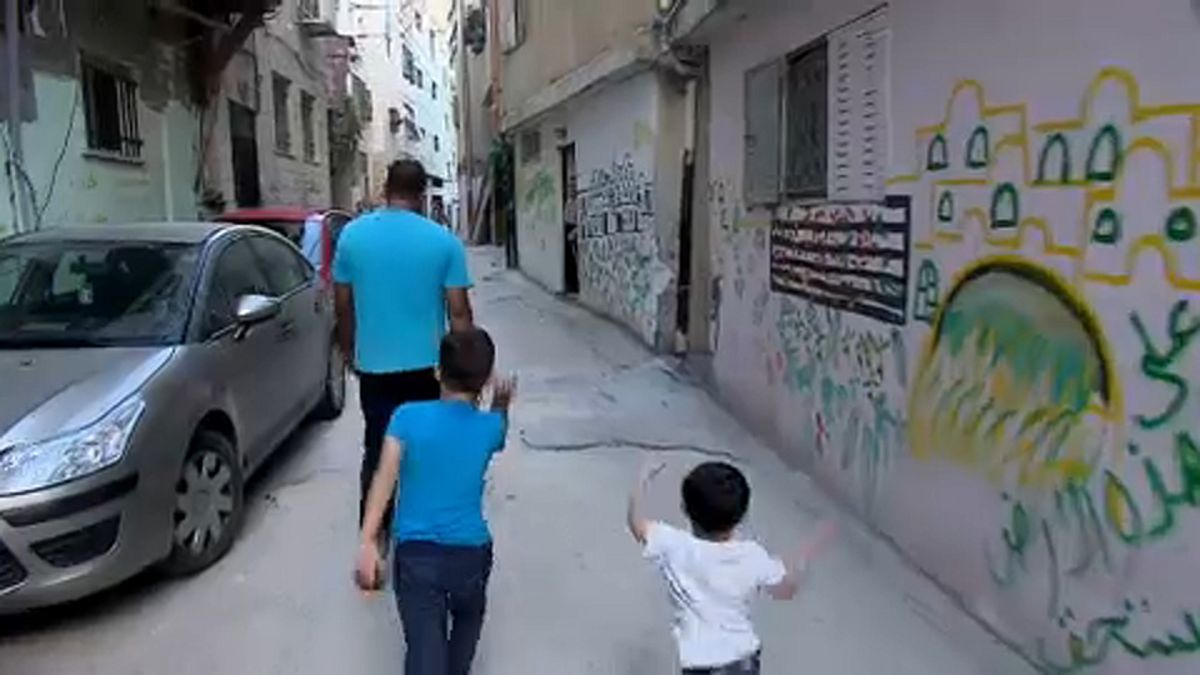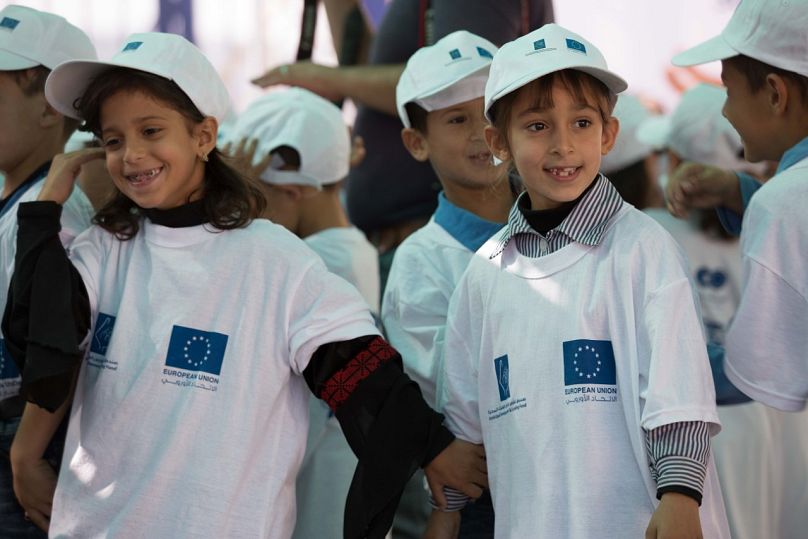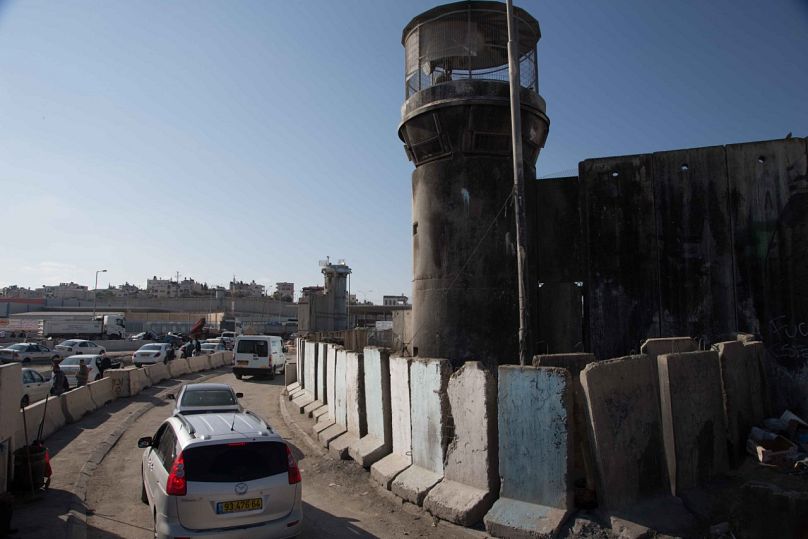Ahead Israel's deadline to form a new government, Euronews traveled to the West Bank by invitation from the EU. The bloc's role in the region is in question, after the US policy shift away from the two-state solution.
“Education is the master beam for a future Palestinian state,” said Marwan Awartani, the Minister of Education, when he inaugurated a new school in the West Bank village of Al O'qban, an infrastructure funded by the European Union.
The European bloc has been the main financial provider since the US cut of its aid to United Nations agency in the Palestinian territories and the local government, in 2018.
"The wellbeing of our children, physical, mental, emotional, spiritual, is a true challenge. The conditions we live in and the difficulties and the hardship that our children experience day-in day-out, is a true challenge for parents, for the school system, and for the community to deal with traumas with all kinds of social and psychological disorders,” Awartani said.
Just a few kilometers from the school, partially surrounded by the West Bank barrier and close to the main checkpoint between Jerusalem and Bethlehem, the al-Ayda Refugee Camp is stage to regular incursions by the Israeli Security Forces.
The seven year old son of Ali Eid Abuaker, a Palestinian refugee, just spent six days in jail after a detention, that was recorded by a neighbor's cell phone.
Witnessing this experience brought back painful memories of his own arrest, when he was 14 years old.
"When I went to the jail, they took me to a one meter by one meter room, like in a cemetery, for three months and 10 days. Now, I have problems in all my body," Abuaker said.
Allegra Pacheco helps surmounting these traumatic experiences. She leads the protection unit created by the UN Relief and Works Agency for Palestine Refugees, that runs the camp since 1950.
"Many times they come in using sound bombs, firing tear gas, they come to specific areas to make arrests. Some children are arrested and released the next day, and some children are arrested and sent to administrative detention, which is detention without charges and that could be months," Pacheo said.
Beyond humanitarian efforts, the Palestinian Authority wants to see Europe take more action.
"I take the opportunity to call upon Europe to take the lead in establishing a coalition to end occupation within the parameters of a two-state solution. If President Trump does not see reality, he is going to be doomed a failure,” Mohammad Shtayyeh, Prime Minister of the Palestinian Authority said.
The Prime Minister's comments were a reaction to the United States’ so-called ‘Deal of the Century’ that’s purpose was to relaunch the peace process by heavily investing in the Arab region.
Israel argues that all Arab powers in the region need to be very clear about Israel's right to exist, which according to Jonathan Rynhold, a professor at Bar-Ilan University, could be the value of the US initiative.
"All the talk about what the actual details of the plan are largely irrelevant because there is not going to be a two-state solution in the next few years, it is not going to happen. In which case, the question becomes: What is it that we can do practically to make that outcome more likely?
Bringing in the Arab States in the Gulf and improving Israel's relations with them is something that Israel can receive and, in exchange, it can provide more freedom of movement, and freezing of settlements and handing over the civilian control of parts of the West Bank that are still under Israeli civilian control,” Rynhold said.
One of the biggest expansion of settlements is in Jerusalem, where the Israel government declared it as the capital.
However, the Palestinians claim the Eastern part of the city as their future capital, but in their neighborhoods, evictions are a common practice.
The Al Sabbagh family lost a 35-year court battle and could be forced out onto the streets any day.
"We will not forget what they did, not only to my family, but also other families in this neighborhood, in all Jerusalem. We will not forget, there is not solution for our problem,” Mouhamad Al Sabbagh, a Palestinian refugee said.
The Sabbagh family is not alone. This is the reality for many in the area after US President Donald Trump relocated the US embassy to Jerusalem in 2018, which broke a 70-year diplomatic precedent.


